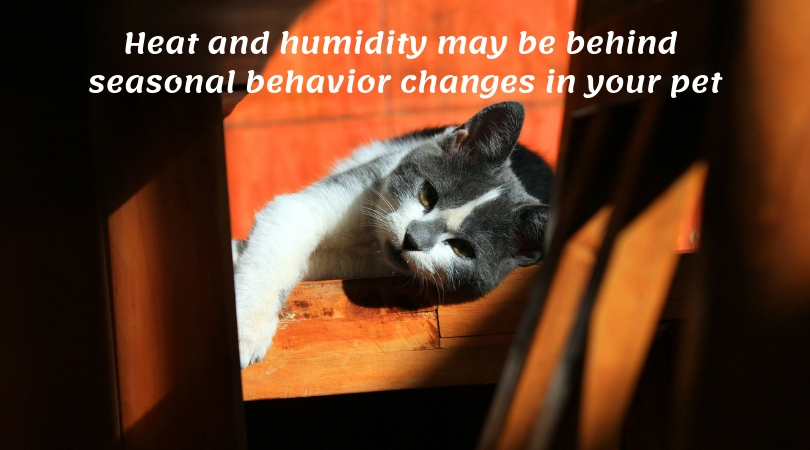Outdoor temperature plays a role in health from both an Eastern and Western perspective. A healthy body—whether human or animal—should be able to adapt easily to changes in weather, until it starts getting into extremes. However, if the body is already out of balance, your dog or cat may experience more inflammation as the temperature rises.
Seasonal Allergies, from the Western and Eastern Perspectives
Consider a dog with seasonal allergies, for example. From a Western perspective, we might conclude that more plants are pollinating, and therefore, we are seeing a more severe allergic reaction. From an Eastern perspective, however, we might conclude that rising temperatures are simply worsening an already hot, inflamed body.
As Summer Arrives
As spring gives way to summer, temperatures naturally rise. But some years, we may experience a dry heat, before any summer humidity kicks in. If a pet is already dry, or Yin deficient, we can see dry heat worsen symptoms such as scaling skin, itching, agitation, increased thirst, restless sleep, constipation, weight loss, and bladder infections, to name a few. These signs can especially worsen during windy conditions.
Many animals who are overly hot or dry may benefit from cooling and moistening foods, such as turkey, whitefish, shellfish, cucumber, zucchini, and watermelon. Chinese herbs formulated to cool the body and, of course, keeping the pet in a cool environment and exercising only during the early morning or early evening hours can also help. Be sure to talk to your veterinarian before making any dietary changes and for recommendations regarding physical activity.
If a pet is damp, he or she may actually feel better when it is dry outside. Older, more heat deficient pets may also feel better in warmer temperatures. Damp animals—think of an overweight Labrador retriever with a large, wet tongue and several lipomas (benign fatty tumors)—really suffer in the type of hot weather typical of hazy, humid summers. So in more humid seasonal transitions, you may notice lethargy, appetite changes, or other signs of discomfort.

Keeping Your Cool
If you have a pet who is already prone to chronic inflammation or other dry symptoms, you may see these conditions worsen during the summer months. Keep in mind that his or her body is hot and may not be able to adapt to changing temperatures easily.
Keep him or her cool, be smart about exercise times, and consider cooling foods. If your pet is still feeling ill, ask us about integrative medicine or other treatments that may be beneficial to help set the balance back where it belongs.
For more information about integrative medicine or to schedule an appointment, please be sure to contact us!



